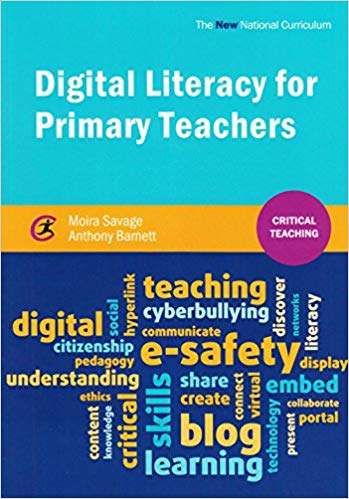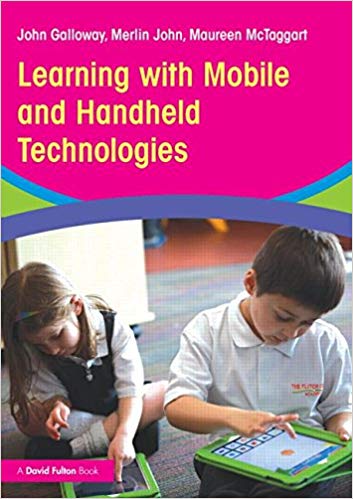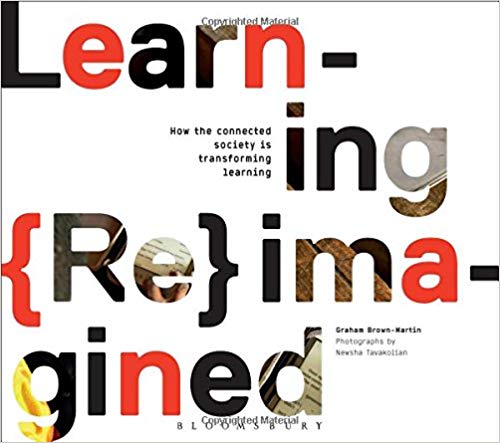Book Reviews

2015. Critical Publishing Ltd |
Digital Literacy for primary teachers
Moira Savage and Antony Barnett. The authors of this new book look at the new National Curriculum from the perspective of digital literacy, critical teaching and pedagogy. They write cogently on digital literacy issues that have tended to be side-lined because of the recent emphasis on Computing, particularly the emphasis on coding. The style is friendly and accessible and the emphasis on a holistic, cross curricular approach is welcome with clear links to the relevant sections of the new National Curriculum. Primary teachers are encouraged to consider digital literacies in plural because there are wide-ranging aspects: for example the role of the teacher as well that of the children as authors as well as consumers of digital content, working individually or collaboratively. The authors acknowledge that today’s learners face very different challenges and opportunities in learning with technology when compared to their teachers’ school experiences. They make a valuable distinction between technological determinism and implementing technology for reasons that are pedagogically sound. The aim is that primary teachers should use technology with a purpose, to achieve authentic goals and share with an audience when appropriate. |

2014. Routledge |
Learning with Mobile and Handheld Technologies
John Galloway, Merlin John and Maureen McTaggart As the authors promise, Learning with Mobile and HandHeld Technologies helps to provide a clearer picture of the field from the practitioners’ viewpoint. It offers some expert views on the topic and provides some reflections on what might unfold in the future for schools engaging with these technologies. As a result of the journalistic experience of the authors the conclusion is particularly lively, wide-ranging and accessible to the non-specialist reader. For those who are interested in the history of the introduction of digital technologies in education in the UK a well-informed narrative is provided. Finally the authors advocate the agency of teachers themselves in the maelstrom of innovation in order to be quite sure that technologies serve the needs of education rather than overwhelming the educators. |

2014. Bloomsbury Academic |
Learning Reimagined: how the connected society is transforming learning Graham Brown-Martin Photographs by Newsga Tavakolian Graham Brown-Martin is a self-styled provocateur in the world of education technology – always taking an extreme view about what kind of education innovation he would like to see in and out of school. When I first saw Learning Reimagined I was surprised, therefore, that Brown Martin had chosen to publish a conventional book, moreover a coffee table book of the best quality, beautifully presented with stylish photographs by Newsha Tavakolian. It is so large and thick at 328 pages that it is actually more than a coffee table book – with four legs were added it would itself make a coffee table! However, we should not judge a book by its cover or its furniture potential. Graham has produced a lavishly illustrated book supported by a range of textual material from interviews and articles to case studies. It offers glimpses of educational technology in ten countries around the world and helps to show how the connected society is transforming learning and explore s, with concrete examples, ideas and innovations that might transform the traditional approach to schooling and thus meet the needs of tens of millions of very different students around the globe. |
